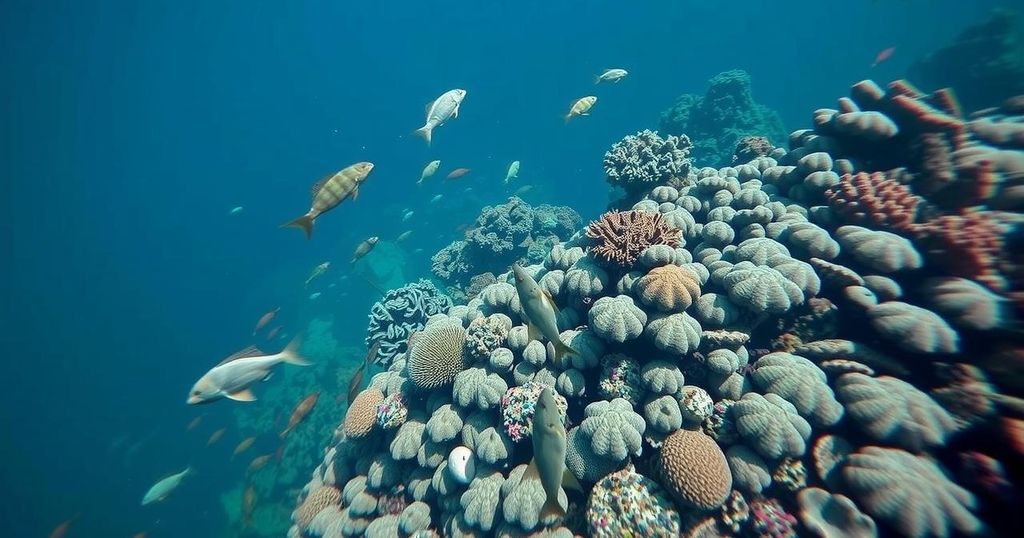UN Calls for Urgent Funding to Protect Threatened Coral Reefs Amid Fourth Mass Bleaching Event
The United Nations, scientists, and governments urgently called for increased funding to protect coral reefs, as 77% are impacted by bleaching due to human-induced climate change. This represents the largest and fourth mass global bleaching event on record, affecting both hemispheres.
CALI, Colombia — On Wednesday, an urgent appeal was made by the United Nations, alongside scientists and governmental representatives, for enhanced financial commitment to safeguard coral reefs that face imminent threats of extinction. Recent research indicates that an alarming 77% of the world’s coral reefs are currently suffering from bleaching, predominantly attributed to the rising temperatures of ocean waters, a consequence largely driven by anthropogenic climate change. This episode marks the fourth and most extensive mass global bleaching event documented to date, affecting reefs across both hemispheres, as reported by the United Nations Capital Development Fund.
Coral reefs are vital to marine ecosystems and provide substantial benefits, including habitat for diverse marine life, protection against coastal erosion, and support for local economies through tourism and fishing. However, climate change has severely jeopardized their health, particularly through phenomena such as coral bleaching, which occurs when corals experience stress due to elevated water temperatures, leading them to expel the symbiotic algae residing in their tissues. This not only affects the corals themselves but also the myriad species that rely on these reefs for survival.
The ongoing crisis of coral bleaching, as detailed by the findings presented at the biodiversity summit in Colombia, underscores the urgent need for global action to address climate change and protect these critical ecosystems. The call for increased funding reflects a broader recognition of the importance of coral reefs, not only for biodiversity but also for their role in sustaining human communities and economies. Immediate and sustained efforts are essential to avert further degradation of these invaluable underwater habitats.
Original Source: www.washingtonpost.com




Post Comment